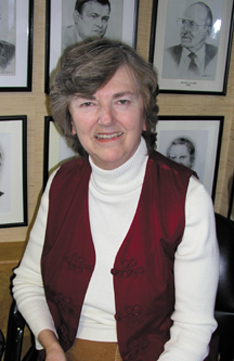
Geotimes Home | AGI Home | Information Services | Geoscience Education | Public Policy | Programs | Publications | Careers

 Julie Jackson’s
résumé is several pages long, and her publications add up to thousands
and thousands of pages. Her impact, however, on the geologic community —
and on the public — is more than just paper.
Julie Jackson’s
résumé is several pages long, and her publications add up to thousands
and thousands of pages. Her impact, however, on the geologic community —
and on the public — is more than just paper. |
Geotimes Home | AGI Home | Information Services | Geoscience Education | Public Policy | Programs | Publications | Careers |